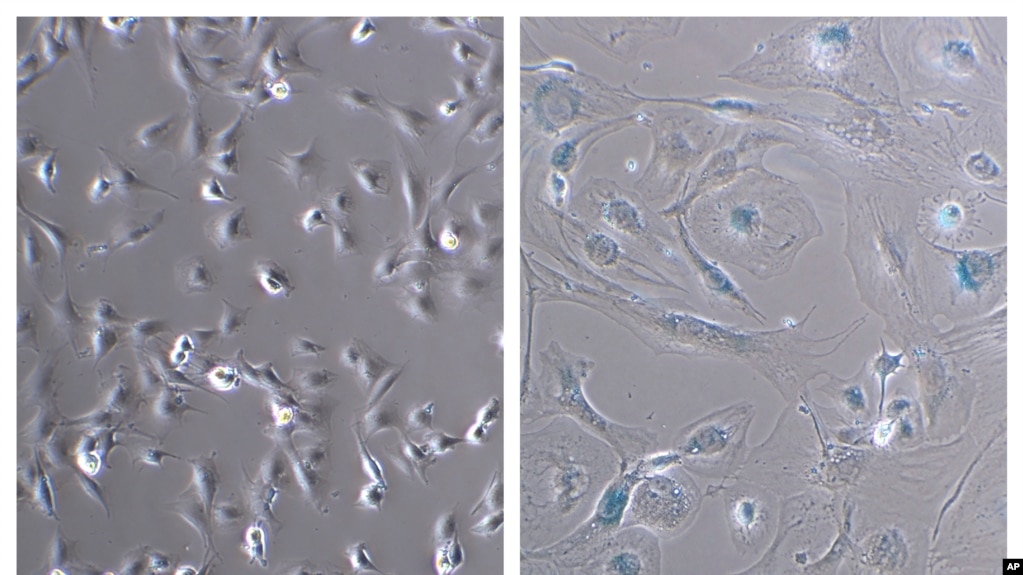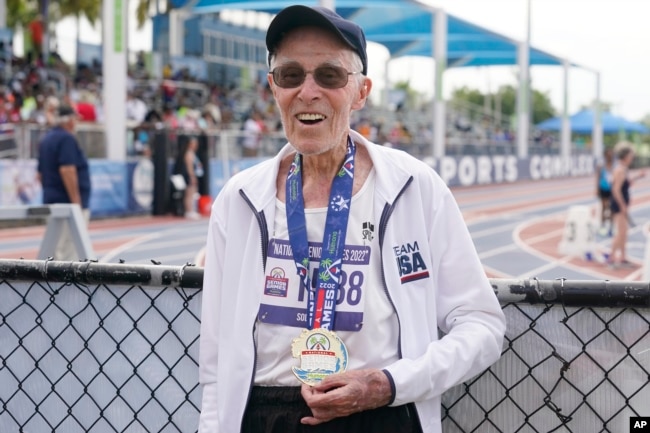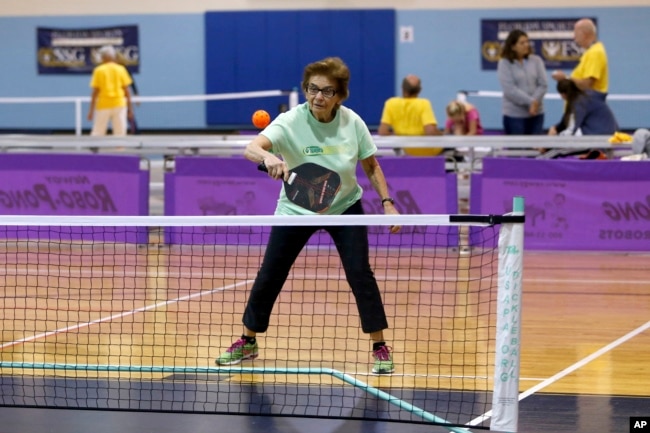Researchers: Exercise Best Tool Against AgingResearchers: Exercise Best Tool Against Aging

More scientists are exploring cellular senescence – a state in which cells no longer divide.
Senescent cells, which build up in older bodies, have a link to age-related conditions such as dementia and cardiovascular disease.
Scientists are exploring drugs that target senescent cells. But the most promising tool against the negative effects of senescent cells, experts say, is exercise.
“A very hot topic”
Viviana Perez Montes of the National Institutes of Health described cellular senescence as “a very hot topic.” The Associated Press reports that about 11,500 projects involving cellular senescence have begun since 1985. The AP report was based on its study of an NIH research database. A large number of the projects began in recent years, the report said.
Such research is built upon the idea that cells stop dividing and enter a “senescent” state in reaction to damage. The body expels most of these cells.
But others remain in the body. They can harm nearby cells, says Mayo Clinic’s Nathan LeBrasseur. He compared it to the way one bad fruit can ruin a container full of fruit.
But scientists wonder: Can the unhealthy buildup of senescent cells be stopped?
“The ability to understand aging ….is truly the greatest opportunity we have had, maybe in history, to transform human health,” LeBrasseur says. Extending the healthy years affects “quality of life” and “public health,” he said.
The number of people 65 or older is expected to double around the world by 2050.
Although no one thinks senescence holds the key to extremely long life, Tufts University researcher Christopher Wiley hopes for a day when fewer people suffer like his grandfather did before death. He had Alzheimer’s disease.
“I’m not looking for the fountain of youth,” Wiley says. “I’m looking for the fountain of not being sick when I’m older.”

FILE - Richard Soller holds the medal he won in the 200 meter final at the National Senior Games, Monday, May 16, 2022, in Miramar, Fla. (AP Photo/Marta Lavandier)
Drugs
About 100 companies, plus academic groups, are exploring drugs to target senescent cells.
Scientists are careful to note that cell senescence can be useful. The process probably developed at least in part to suppress the development of cancer. Cell senescence happens throughout our lives, caused by things like DNA damage and the shortening of telomeres, structures that protect the ends of chromosomes. Senescent cells play a role in wound healing, embryonic development and childbirth.
But problems can come up when senescent cells build up.
“When you’re young, your immune system is able to recognize these senescent cells and eliminate them,” says Perez, who studies cell biology and aging. But, when we start getting old, in Perez’s words, “the activity of our immune system also gets diminished, so we’re losing the capacity to eliminate them.”
Experimental drugs designed to clear senescent cells have been called “senolytics.” In mice, they have been shown to be effective at delaying, preventing or easing several age-related disorders.
At least 12 clinical trials with senolytics are now testing whether the drugs can help control Alzheimer’s, improve skeletal health and more.
There is still much to learn.

FILE - Leurene Hildenbrand, 85, competes in mixed doubles pickleball action during the Florida Senior Games presented by Humana on Saturday, Dec. 9, 2017 in Clearwater, Florida. (Brian Blanco/AP Images for Humana)
Exercise
Today, LeBrasseur, who directs a center on aging at Mayo, says exercise is “the most promising tool that we have” for good health in late life, and its power extends to our cells.
Research suggests exercise counters the buildup of senescent cells, helping the immune system clear them and fight the molecular damage that can affect the senescence process.
Last year, LeBrasseur led a study that provided the first evidence in humans that exercise substantially affected the process. It reduced signs in the bloodstream of the effects of senescent cells in the body.
After a 12-week exercise program, researchers found that older adults had decreased signs of senescence and improved muscle strength, physical ability and reported health. A recently-published research review collects even more evidence — in animals and humans — for exercise as a senescence-targeting therapy.
While such studies are not well-known outside scientific circles, many older adults connect exercise with youthfulness.
Rancher Mike Gale, 81, put in a track and field throwing circle on his large property in California. He and some of his friends throw the discus and use other exercise equipment.
“I’d like to be competing in my 90s,” Gale says. “Why not?”
95-year-old Richard Soller says exercise keeps him fit enough to deal with what comes his way – including the discovery that his wife of 62 years had developed Alzheimer’s. The two sometimes walk the streets of their neighborhood together, holding hands.
“Do as much as you can,” he says. “That should be the goal for anyone to stay healthy.”
Words in This Story
topic – n. someone or something that people talk or write about
opportunity – n. an amount of time or a situation in which something can be done
transform – v. to change (something) completely and usually in a good way
fountain of youth – expression a legendary fountain that is supposed to give eternal youth to anyone who drinks from it
diminish – v. to become or to cause (something) to become less in size, importance, etc.
capacity – n. the ability to do something : a mental, emotional, or physical ability
clinical – adj. relating to or based on work done with real patients : of or relating to the medical treatment that is given to patients in hospitals, clinics, etc.
https://learningenglish.voanews.com/a/6727260.html


